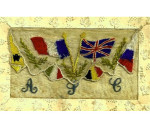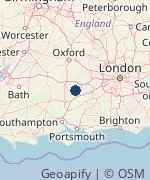WW1 - Where the Money Went! - The Sequel
Roy Larkin
- Region:
- Anywhere
- Notice Period:
- Emergency (maybe less than one week's notice)
- Type:
- Professional/hobby
- Fee:
- Unknown: Sensible expenses depending on distance.
- Category:
- History
- Updated:
- 6th February 2024
- Tagged:
- WW1 A Human Story | 1914-18 | Financial
Following on from 'Where the Money Went', a further look at some of the quirkier ways the government found to spend money during WW1. The sequel starts to look at getting some money back through salvage and the disposal system. Fully illustrated with period images. Perfect for mixed audiences with or without WW1 or military interest.
Views: 862 | Enquiries: 0About Roy Larkin
A range of Powerpoint supported talks, specially designed and written to provide a different aspect to the Great War than the usual 'battle' talks. Quirky and different enough to send the imagination down rabbit holes the audience never before considered they needed to go down, whether interested in WW1 or military history or not.
A lifelong career of self-employment in the road haulage industry, starting before it became trendy to be the logistics industry. A keen interest in its history was maintained including involvement with the Historic Commercial Vehicle Club, later Society when time allowed. Writing articles for the preservation movement magazines began in the 1980s, particularly for Vintage Roadscene, but including other national monthly publications. This has continued to the present day with semi-regular articles in Vintage Spirit magazine and a regular column in the Great War Group magazine, Salient Points.
A chance discovery of a document at the Royal Logistic Corps Museum, while editor of the Roads and Road Transport History Journal, led to my first book, Destination Western Front. Initially in conjunction with the London Transport Museum, it was to be a short piece for use in their museum. Like things tend to happen, a short piece grew until it became a book. Circumstances dictated it would be my first self-published book. The second edition followed a chance find at the National Archives.
The opportunity to meet with Fred, a gentleman who had worked for an iconic heavy haulage company during the 1920s to nationalisation in 1948 was too good to miss and we had many very enjoyable meetings. Those meetings included a lady, whose father had been the manager of the Birmingham depot of Edward Box Ltd, Fred’s employer. The result was my book, We Can Do It!, an industrial/social history told through the memories and photographs of those who lived it with my own historical research.
Covid lockdowns enforced the time and, with the National Archives offering free downloads, the resources to delve deeper into research and to expand the research into a broader spectrum, though specialising in WW1.
Interest in the Great War began with its influence on the British road haulage industry in the 1920s. Volunteering at the Royal Logistic Corps Museum provided opportunity for more in-depth exploration of road transport on the Western Front. Regular delving into The National Archives has diversified the focus to anything in the back area and the home front, the quirkier the better. More WW1 quirkiness, military abbreviations and my books can be found at my website www.historicroadways.co.uk
Talks suitable for mixed audiences with or without military/WW1 interest and specialised WW1 interest.
Talks presented to Western Front Association Branches, Great War Group, U3A, Probus, Local History Groups, Women's Institutes, Industrial History Groups, Military History Groups, Museums.
Send a message to the speaker
If you are interested in this talk and wish to contact the speaker, please complete the following form:

